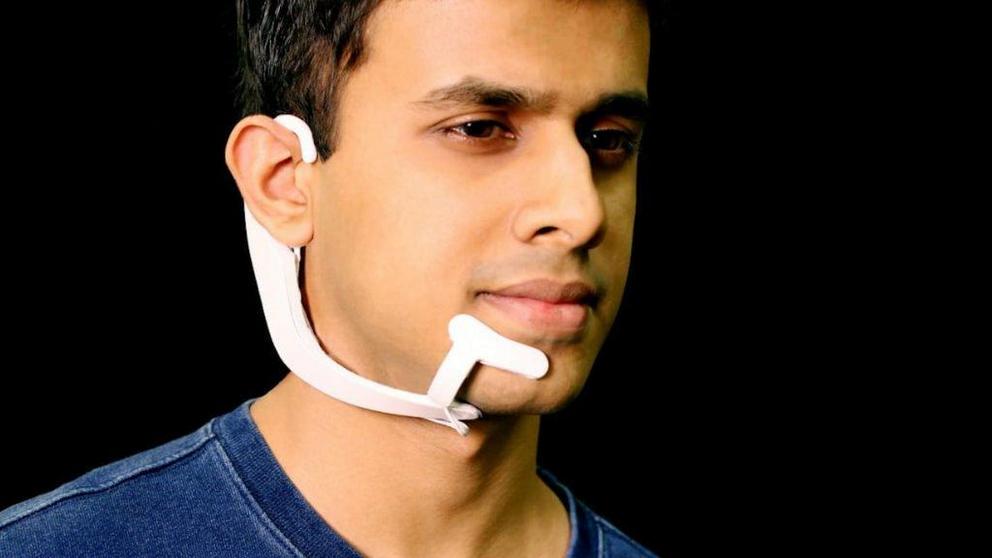MIT’s wearable headpiece can hear the words you ‘say’ in your mind
In Brief
- The Facts:
Technology is accelerating quickly, devices we have only seen in science fiction movies are quickly becoming a reality. This new 'mind reading' device is one example of many.
- Reflect On:
Is it important we consider the implications of using so much technology that has the potential to rob us of our privacy before we jump on the bandwagon?
While the concept of subvocalization may sound like something straight out of a science fiction movie, like many things nowadays, it is becoming a part of our reality. Subvocalization is the practice of quietly saying things in your head while we read, the majority of us do this even if we don’t realize it. Recently, MIT researchers have begun to use this process as a way to interact with mobile devices and computers. Essentially, they have developed a device that you wear on your face that effectively measures the neuromuscular signals that are triggered whenever you subvocalize something in your head.
So, if you’re wondering what the point of this gadget is, when we already have voice technology like Hey Siri and OK Google — well, you’re not alone.
This MIT system includes electrodes that pick up the movements when you verbalize internally as well as bone-conduction headphones, which use the vibrations that are sent to the bones of your inner ear without obstructing your ear canal. These signals are then sent to a computer that is able to use neural networks to distinguish the words. This system has been used so far to navigate a Roku, and for reporting your opponent’ movies in a game of chess in order to get the best counter moves all in complete silence.
“The motivation for this was to build an IA device — an intelligence-augmentation device, our idea was: Could we have a computing platform that’s more internal, that melds human and machine in some ways and that feels like an internal extension of our own cognition?” says Arnav Kapur, a graduate student at the MIT Media Lab in a statement.
So far the device has a rather limited vocabulary of about 20 words, and while it is clever, researchers say that it is still limited. It has a 92 percent accuracy with the 20 words, although they expect it to scale up and get more sophisticated over time.
“We’re in the middle of collecting data, and the results look nice,” Kapur says. “I think we’ll achieve full conversation some day.”
What Are The Implications?
Imagine being able to control your television, send text messages, ask for directions all without uttering a word? This could soon be a reality. The kicker? If this became a device that we could use instead of using a speech device, could the words that we are thinking inside our heads be sent and stored to someone who might be listening? To me, this device seems a little too close for comfort and is resembling yet another concept from George Orwell’s classic, ‘1984,’ the thought police, who have the ability to read your mind and make arrests if anyone is even thinking about stepping out of line.
Before jumping on the tech bandwagon it is very important to understand the potential implications of having these devices literally, too close for comfort. It is really not that difficult to say voice commands to control your phone or send texts, but many feel that even that software could be capable of recording your every word whether you are commanding it to or not. Another example of this is a story we covered a few years ago about how Samsung Smart TV’s were admittedly recording your conversations, this is yet another similar concept from ‘1984,’ the telescreens that would record everything going on inside the homes of the citizens.
With that being said, it is important to know that we do not need to fear this technology, but yes, we absolutely need to be aware of the implications no matter how cool, sleek or convenient it may appear to you.

